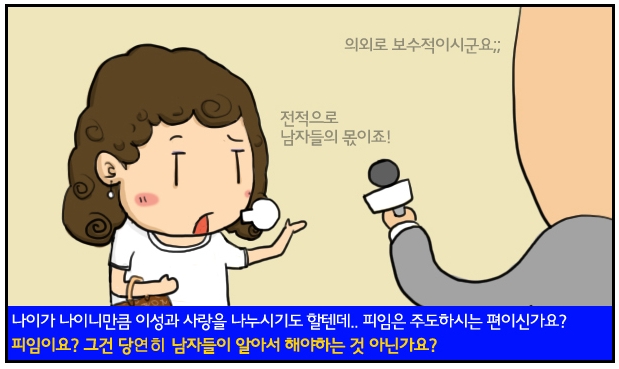In the continued financial stand-off between doctors and pharmacists, Korean women’s health and sexual freedom remain a low priority.
 (Source: withhyunbin; CC BY-NC 2.0)
(Source: withhyunbin; CC BY-NC 2.0)
Remember back in 2012, when the Korean FDA announced the monthly birth-control pill would become prescription only?
In isolation, there are many reasonable arguments for such a change. In the context of the criminalization of abortion though? Plus the slut-shaming that compels many women to rely on their male partners for contraception, combined with Korea’s woefully-inadequate sex education? Then that freedom of access was important.
What’s more, while the monthly pill was to become prescription only, the morning-after pill was to be made over the counter.
That made no sense, whatever one’s feelings about either pill. And indeed, there were no sudden new medical reasons provided to justify the changes. Instead, as I wrote this January:
…it was a transparent attempt to forge a compromise between the competing financial interests of the Korean Medical Association and the Korean Pharmaceutical Association. And a blunt demonstration that women’s health and sexual freedom were the least of the government’s concerns.
Fortunately though, it backed down in the face of outrage, and because the outgoing Lee Myung-bak Administration resolved it was not worth creating a political headache for Park Geun-hye’s presidential campaign. Also fortunately, Park Geun-hye hasn’t tried again since gaining power. A surprise, frankly, given her continuation of Lee Myung-bak’s equally bizarre and women-unfriendly policy of (re)criminalizing abortion in order to raise the birthrate. (And in practice, only serving to make abortion services much more expensive and difficult to find.)
Four years later, she still hasn’t. And it’s wonderful that the monthly pill remains over the counter.
Alas, that doesn’t mean the government hasn’t been busy. Earlier this week, it decided that the morning-after pill would remain prescription only. As the Korea Bizwire reports:
The Ministry of Food and Drug Safety revealed that after a comprehensive review of contraceptives’ actual usage statistics, side effects, and general public awareness, it would continue to categorize emergency contraceptives as ethical drugs.
Ethical drugs, also referred to in Korea as ETC drugs, are defined as drugs that require a doctor’s prescription for usage, and the Ministry of Food and Drug Safety revealed that the decision to keep emergency contraceptives under the category of ETC drugs was due to serious concern over the possible abuse of these contraceptives by the public.
On the other hand, the ministry will maintain its categorization of regular contraceptive pills, which are to be taken prior to sexual intercourse, as over-the-counter (OTC) drugs.
Recent trends show that the production and imports of emergency contraceptive pills are both increasing – growing from 2.8 billion won to 4.4 billion won in 2014 and then 4.2 billion won in 2015 – according to a study on contraceptives’ actual usage statistics, side effects, and general public awareness conducted between 2013 and 2015 by the Korea Institute of Drug Safety & Risk Management on 6,500 individuals of both genders between 15 and 59 years of age.
And yet, the study also found that only 44 percent of females in the study had accurate knowledge about emergency contraceptive pills, such as their side effects.
[Emergency contraceptive pills have] a high risk of side effects compared to regular OTC contraceptive pills in that the drastic hormonal change could be a considerable burden on the female body.
The Korea Herald adds that only “36 percent of female teenagers were accurately informed about the drug and its possible side effects” (as opposed to the 44% of women mentioned above). Unlike in 2012 though, now it appears that the Ministry has Korean women’s and teenagers’ health very much in mind.
I call bullshit.
This is dubious, retroactive justification of a decision made entirely on ideological grounds.
First, consider the track-record of the Park Geun-hye administration, which is unusually beholden to conservative vested interests. In the absence of (sufficient) political pressure from the Korean Pharmaceutical Association, and/or the ever-dwindling pool of young female voters, it would be extremely unlikely to ever make such a female-friendly, sexually-progressive move as increasing access to the morning-after pill.
Next, recall that under-18s aren’t actually allowed to access information about contraception on the internet, in which case that figure of 36 percent could even considered a positive. (Search on portal sites, and a social security number login will be required.)
(Update: It turns out, that login may only be required for information about condoms.)
Finally, and in particular, the Korean Medical Association has a long history of scaremongering about the pill, which likely plays a big role in why only 2.5% of Korean women actually use it. This makes me very, very wary of the Korean government’s claims about the dangers.
Sure enough, just this week Fusion offered a damming rebuttal of those, via an article on why US universities don’t offer the morning-after pill to students:
…Medication abortion is really, really safe. Since 2000, more than 1.5 million women in the U.S. have used it to terminate early pregnancies. While the pill can cause side effects such as nausea, fever, and cramping, it has an adverse effect rate of only 0.2 percent. That’s way less than adverse effect rate for the asthma inhaler Advair (27 percent), the antidepressant Wellbutrin (22.3 percent), the anti-anxiety drug Xanax (13.9 percent), and the cholesterol medication Lipitor (12.9 percent).
And just two months ago, the FDA revised its label of the abortion pill mifepristone to match the evidence-based protocols already being utilized by physicians nationwide—a protocol that allows for the drug to be given up to seventy days into a pregnancy, instead of forty-nine days and states that a smaller dose can be given to efficiently terminate a pregnancy.
But I’m clearly biased in favor of over the counter access, for just about every non-invasive/non-surgical contraception really, so please let me know what you think. Also, let me pass on the following video report for Korean speakers, although it doesn’t add much to the English articles already linked sorry (unless readers spot something I missed?):
Update:
Claire Lee at the Korea Herald has just penned a must-read on the angry response of Korean women and Korean women’s-rights groups, and the utter uselessness of visiting doctors for the morning-after pill. Not least, because of the frequent slut-shaming involved.
Related Posts:
- (Still) Empowering Korean Women: Over-the-counter contraceptive pills
- Korean Women’s Sexual Histories: Still a slippery subject
- Korean Sociological Image #89: On Getting Knocked up in South Korea
- Ministry of Health and Welfare: “Unwed Mothers are Ignorant Whores”
- Challenging Stereotypes about Abortion
- Getting an Abortion in Korea
- Resisting the Criminalization of Abortion in South Korea
- Why Korean Girls Don’t Say No: Contraception Commercials, Condom Use, and Double Standards in South Korea
- Korean Family Planning Advertisements, 1960s-1980s — Are Today’s Young Couples Less Informed than Their Parents Were?
- Quick Hit: “Don’t Leave the Responsibility for Contraception to Men”
- Korean Medical Association: Don’t Take the Pill!
- Korean Sociological Image #83: Vintage Contraceptive Pill Commercials




 Mr Kang, reporter: “As women are actively making advances in Korean society, so too are women becoming more open and assertive about sexual matters.”
Mr Kang, reporter: “As women are actively making advances in Korean society, so too are women becoming more open and assertive about sexual matters.”
 Mr Kang: “I will ask about modern women’s opinions on sex and love…Nice to meet you Ms Kim. Ms Kim, I heard that you have very liberal and open attitudes to love. Is that true?”
Mr Kang: “I will ask about modern women’s opinions on sex and love…Nice to meet you Ms Kim. Ms Kim, I heard that you have very liberal and open attitudes to love. Is that true?” Mr Kang: “Since you are old enough, I assume that you have sex with your boyfriends. Do you take the initiative and/or insist on using contraception?”
Mr Kang: “Since you are old enough, I assume that you have sex with your boyfriends. Do you take the initiative and/or insist on using contraception?”

